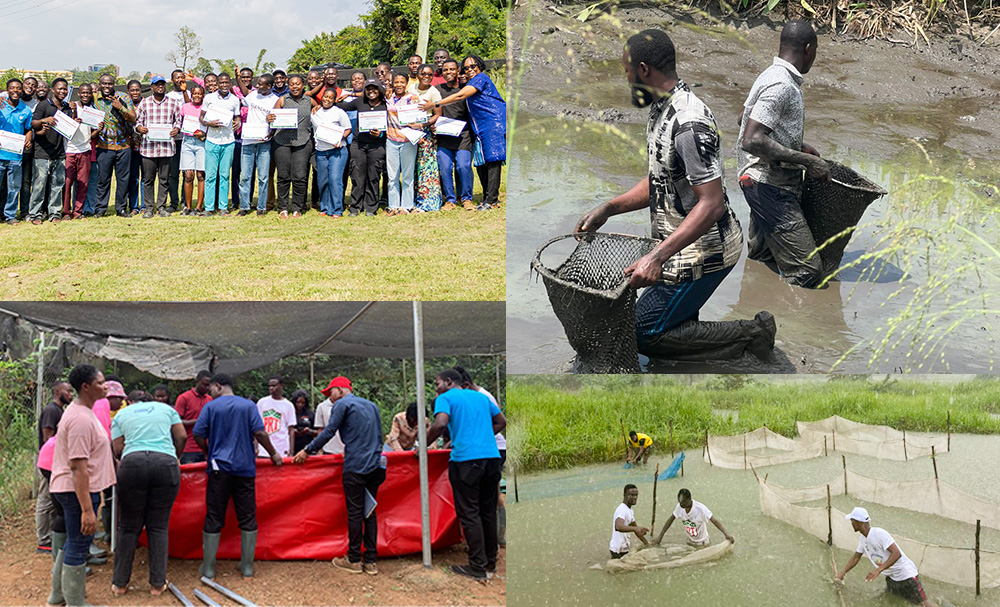At the Ejura Camp Prison, Thomas Sam Abenaba, a prison officer, has long pondered how to help inmates rebuild their lives after serving their sentences.
His search for practical solutions led him to the Kwame Nkrumah University of Science and Technology (KNUST) Nutrition and Sustainable Agri-food (Nkabom Collaborative), where training in aquaculture and aquaponics has transformed both his outlook and his mission.
For years, Abenaba had witnessed the struggles of ex-inmates trying to reintegrate into society.
When he learned about an upcoming aquaculture training organised by the KNUST Nutrition and Sustainable Agri-food Collaborative, in partnership with the Mastercard Foundation, he decided to take part.
“I enrolled to acquire the skills needed to train inmates, helping them reform and develop a means of livelihood,” he said.
The training turned out to be more than an educational opportunity. For Abenaba, it was a transformative experience that rekindled his hope of changing lives behind bars.
He said the course exposed him to both theoretical and practical aspects of aquaculture, including pond types, site selection, fish health monitoring, organic farming methods, and the integration of fish and crop production.
Abenaba is not alone in his inspiration. Davina Foriwaa Owusu, an unemployed graduate, said the training helped her reimagine her business ambitions in aquaculture.
Initially, she planned to open a point-and-kill restaurant, but after studying entrepreneurship models during the course, she realised the market was saturated.
“I decided to turn catfish into nuggets people can enjoy with fries. This training has opened my eyes to new possibilities,” she said.
The six-week intensive programme brought together 26 participants united by a shared goal: to build entrepreneurial thinking and creative problem-solving along the aquaculture value chain. Participants explored fish production, packaging, marketing, and value addition.
Speaking at the closing session, Professor Daniel Adje-Boateng, the lead facilitator, emphasised the national importance of aquaculture.
He said Ghana consumes over one million tonnes of fish annually but produces only about 400,000 tonnes locally.
“Through aquaculture, we can bridge this gap by cultivating our own fish while creating jobs for young people,” he said.
Prof. Adje-Boateng also stressed the need to empower youth to explore opportunities across the aquaculture value chain from hatchery operations and farming to post-harvest processing and input supply.
“This training was critical because we want to build capacity among the youth who will drive the future of aquaculture in Ghana,” he added.
Professor (Mrs.) Ibok Nsa Oduro, co-lead for the Education Pillar of the KNUST Nkabom Collaborative, said one of the key objectives of the training was to inspire a mindset shift among young people toward agriculture.
She said beyond technical skills, participants were being encouraged to view aquaculture as a viable business capable of creating employment and enhancing food security.
“Our focus is not only on training participants to produce fish but on transforming their mindset to see agribusiness as a profitable and sustainable career path,” she said.

















